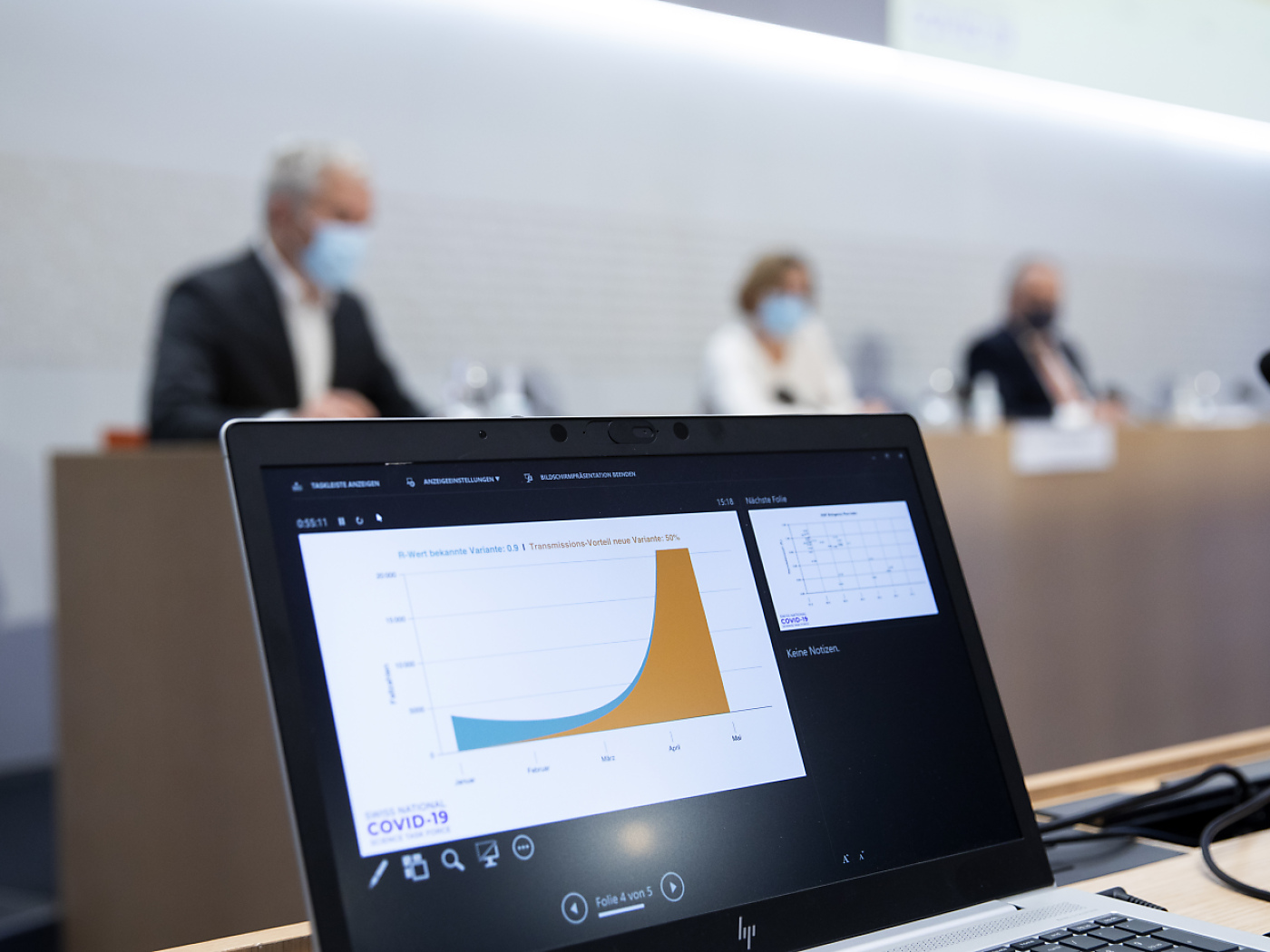
New Swiss model improves epidemic predictions

A new mathematical model developed by Swiss researchers aims to improve the prediction of epidemics in the future. In the new model, the reproduction number, the R value used during the Covid pandemic, is replaced by a reproduction matrix.
+ Get the most important news from Switzerland in your inbox
Using data from the Covid pandemic in Switzerland and Scotland, researchers at the Swiss Federal Laboratories for Materials Science and Technology (Empa) developed a model that can predict much more accurately when peaks in the infection rate were reached, the institute announced on Thursday.
The reproduction number R describes how many people an infected person infects on average. If R is greater than one, the number of cases increases exponentially; if R is less than one, it decreases. However, this figure is highly simplified. In reality, according to the researchers, not every person infects the same number of other people.

More
Excess mortality rate post-Covid could persist until 2033
Superspreaders with many contacts infect a disproportionately high number of people, while others infect hardly anyone.
Society divided into groups
This is taken into account by using a reproduction matrix. The researchers at Empa divided society into groups according to age. People between the ages of 10 and 25 have the most contacts.
According to the researchers, the R-value can predict the incidence of infection at the beginning of a pandemic. However, the peak of an epidemic or pandemic is usually lower than model calculations with the R-value would suggest.
Relatively few superspreaders
The reason: the number of superspreaders in society is relatively small. If they are all infected, the spread of the disease slows down. Conventional models based on the reproduction number R do not take this slowdown into account.
The research team led by Ivan Lunati presented the new model to the scientific community in the Journal of the Royal Society Interface. While it works well for relatively small countries such as Switzerland and Scotland, it may be more difficult for large countries, the researchers admit. This is because it assumes that both the infections and the superspreaders are evenly distributed throughout the country. The model would need to take into account the geographical distribution of the population and contacts between the regions in order to be more accurate for large countries.
Translated from German by DeepL/jdp
This news story has been written and carefully fact-checked by an external editorial team. At SWI swissinfo.ch we select the most relevant news for an international audience and use automatic translation tools such as DeepL to translate it into English. Providing you with automatically translated news gives us the time to write more in-depth articles.
If you want to know more about how we work, have a look here, if you want to learn more about how we use technology, click here, and if you have feedback on this news story please write to english@swissinfo.ch.

In compliance with the JTI standards
More: SWI swissinfo.ch certified by the Journalism Trust Initiative










































You can find an overview of ongoing debates with our journalists here . Please join us!
If you want to start a conversation about a topic raised in this article or want to report factual errors, email us at english@swissinfo.ch.